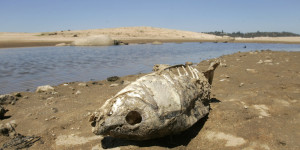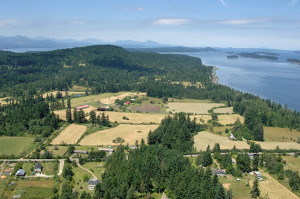 Women and children first! That’s what we’d suggest if our ship, the Vancouver Island, were sinking.
Women and children first! That’s what we’d suggest if our ship, the Vancouver Island, were sinking.
Click here to read the complete article.
It’s not sinking, not immediately at least. But it is tilting, the Island’s southwest tip rising while the Juan de Fuca tectonic plate attempts to slip under the North American continent. It’s stuck now, but a spectacular earthquake awaits us when the plate breaks free. But that’s another matter.
It’s the Paris talks on climate change that have us thinking of other earth-shaking consequences these days, the world’s weather falling upon our coasts and islands.
Rising oceans already lap at the bow and stern of the Good Ship Vancouver Island, and a wary captain worth his salt might be thinking it’s time to secure the cargo.
Melting glaciers of Greenland, Canada and the poles are causing seas to rise.
With storm surges and high waves bringing extreme weather, coastal cities and lowlands are flooding. Island nations are challenged; some of the unlucky, particularly those barely above sea level, are weighing the odds, moving people and industry to higher ground. Everywhere, climate refugees are preparing to leave their sinking ships.
What then Vancouver Islanders? We have big development plans for our harbours and shorelines, and “business as usual” seems the prevailing trend. Should the welcome sign be out for all those thinking of moving here?
 High seas, tempests, deluges and summer-long droughts — are these but worrisome predictions for the faint of heart? Vancouver Island is larger than 50 countries of the world. Surely we will weather the storms, survive the heat waves and beat the odds.
High seas, tempests, deluges and summer-long droughts — are these but worrisome predictions for the faint of heart? Vancouver Island is larger than 50 countries of the world. Surely we will weather the storms, survive the heat waves and beat the odds.
Then again, good Canadians, Boy Scouts and Girl Guides know it’s best to be prepared.
A second look at Vancouver Island, our assets and challenges, would be worthwhile at this time, while we have the means to consider our options, and how we might work together. Second thoughts about what’s coming, and what we need to do, would be wise.
Getting Islanders together across all interests and sectors, from Victoria to Port Hardy, and comparing notes and developing a strategic plan would make us that much the wiser.
Without exaggeration, if we want to claim to be responsible citizens, with the best of intentions for us, our neighbours and our children, we need to sit down together with the climate predictions — the good and the bad — and figure out exactly what they mean for Vancouver Island’s shores and lands.
What exactly happens to our way of life, our homes, businesses, towns and communities, harbours and waterfronts? What about our shores, lowlands, flood plains and dikes? And how will our aquifers, marshlands, rivers and estuaries fare?
What of the habitats and ecosystems that have long buffered and provided for us? How will our food and water needs, energy demands and the like be met in a worst-case scenario? Is a three-day emergency supply enough for Islanders facing a perfect storm?

From sea to sea to sea, Canada’s coastlines, and our many coastal communities, face such questions. As responsible seafaring and landlubber Islanders, we can’t just trust to luck. It’s time for us to take the initiative, begin to inventory, and to know our Island and our footprint. What will see us through times of extreme weather and climate change?
We should start to make plans for a Vancouver Island we would want to live on in 2030, 2050 and 2100. We should know how we’ll invest our time and resources. We should know where we shouldn’t be building new luxury waterfront condos and industrial developments, what we might have to sacrifice to the sea and what we cannot afford to lose.
Vancouver Islanders should be working together for an Island plan, building a framework that brings all interests to the table. Let’s adopt best practices across regions, consider stewardship work of the Islands Trust and adapt sustainable development policies that will take us through sea-level rises and the worst of climate change.
Let’s take charge, and refuse to be blown off course. Let’s keep Vancouver Island afloat in a sea of change.
Laurie Gourlay and Scott Akenhead are directors of the Island Roundtable on the Environment and Economy.
